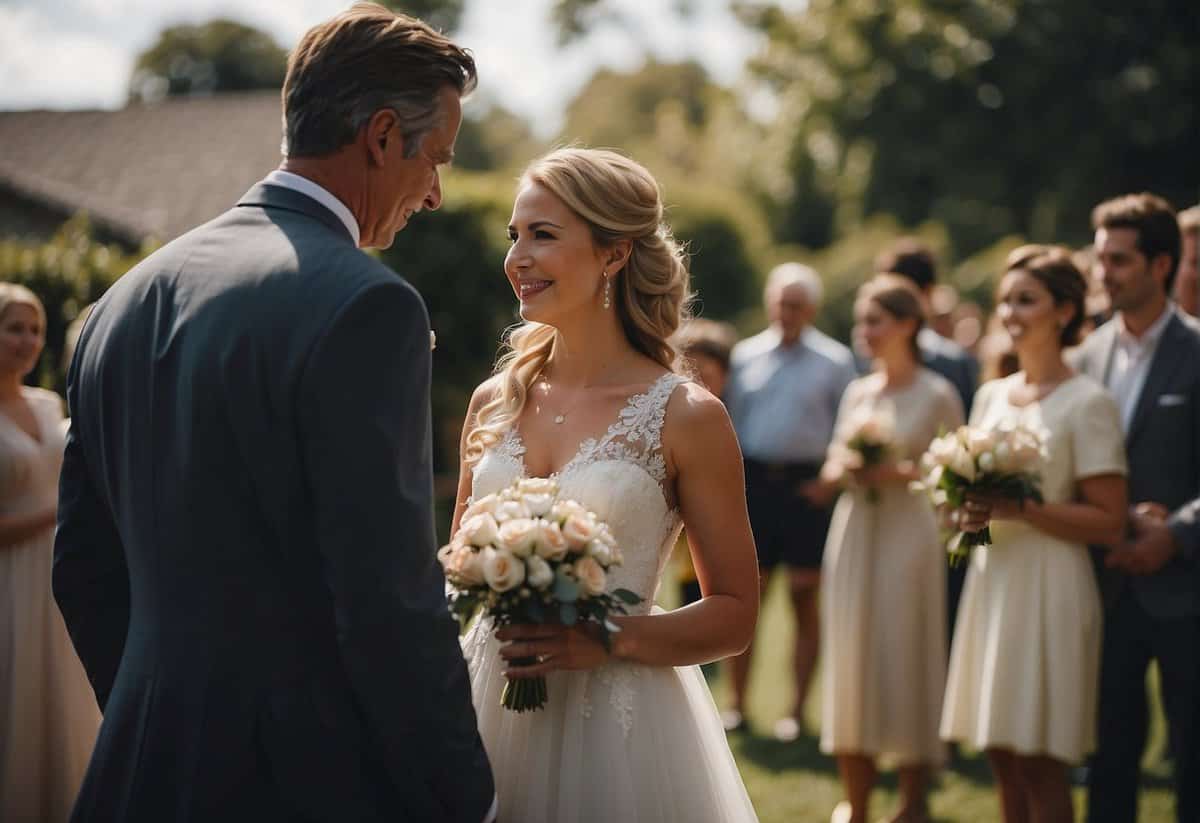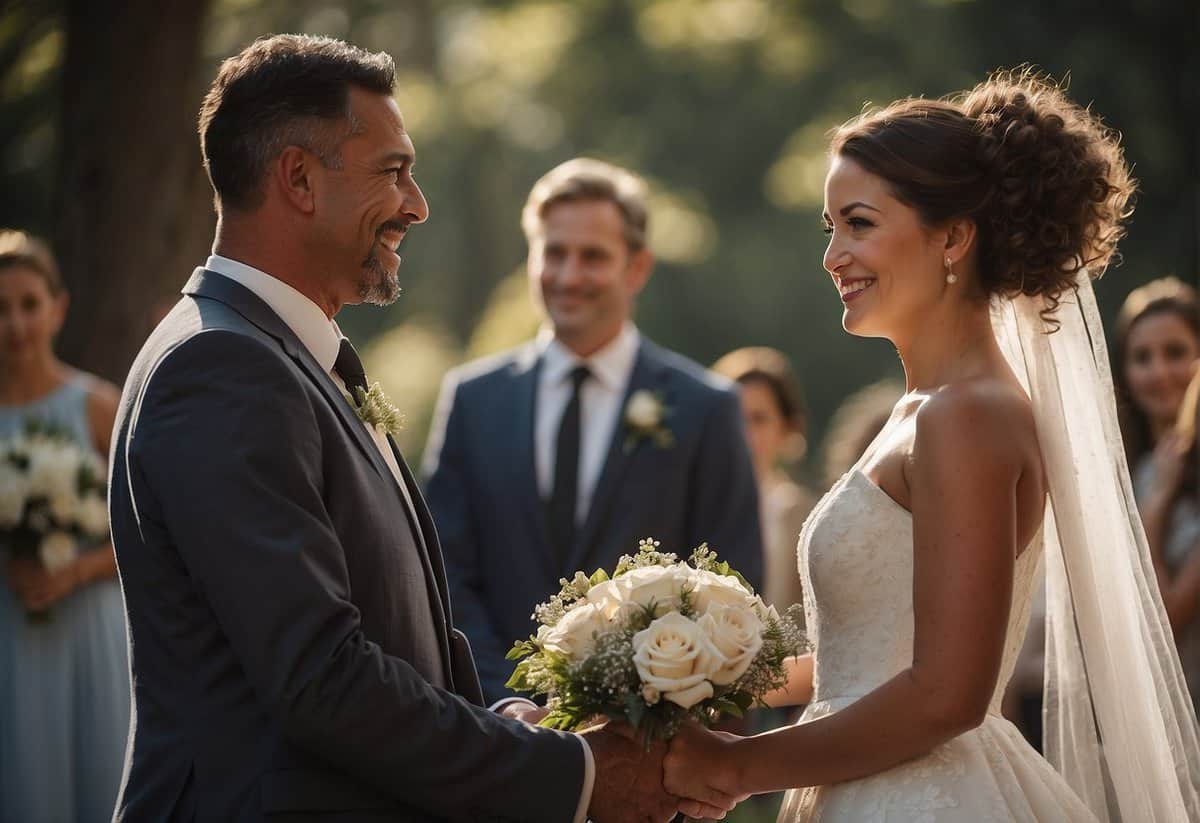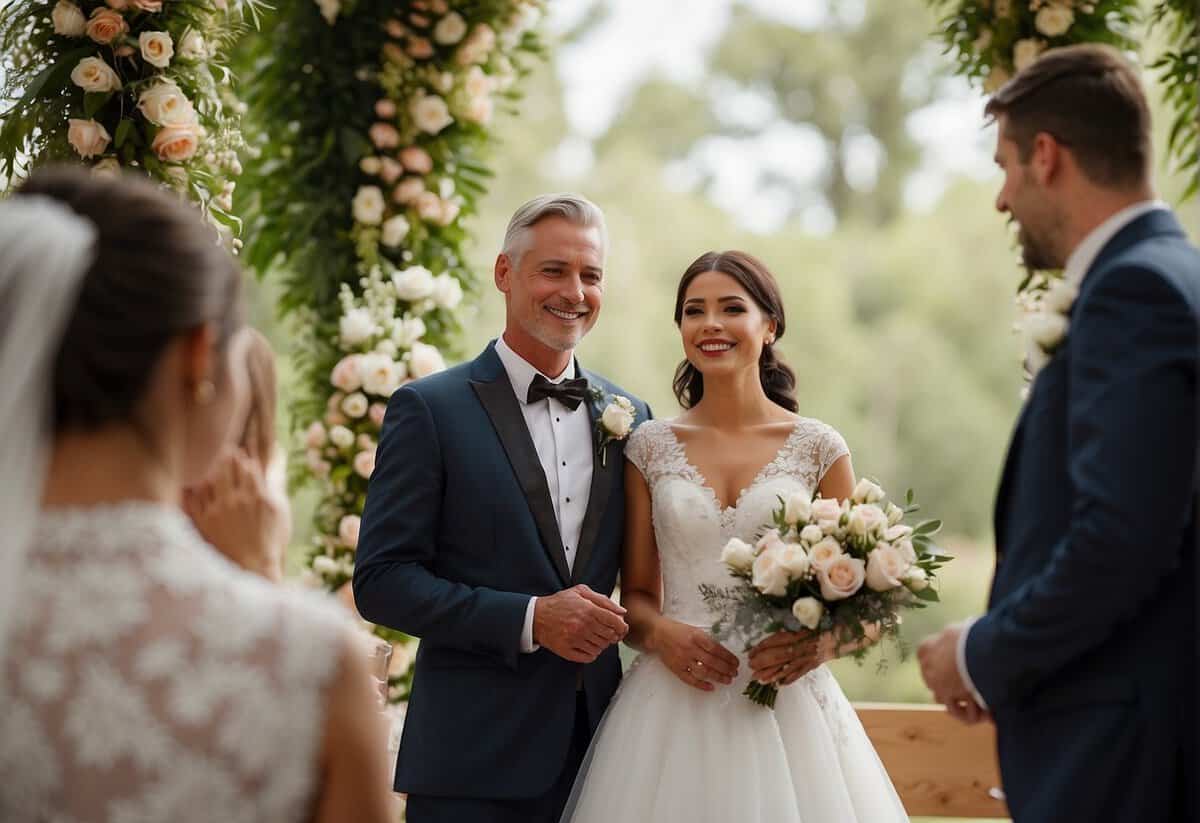Why Do Fathers Give Their Daughters Away at Weddings? Unveiling the Tradition
In the panorama of wedding traditions, the act of a father giving his daughter away is one steeped in history and symbolism. Originating from a time when marriages were more transactional and women were transferred as possessions, this ritual has evolved into a poignant moment that often symbolizes parental blessing and support. While some view it as an antiquated display of patriarchal values, for many, it remains a deeply meaningful ceremony where a father expresses trust in his daughter’s choice of partner and marks the transition of protective roles from himself to the groom.

This tradition is not merely a formality but often one of the most emotional parts of a wedding ceremony. Over time, the concept of ‘giving away’ has broadened to fit the diverse array of family structures and social values present in modern society. It serves not only as a nod to tradition but also as a customizable moment that reflects the individual relationships and values of those involved. Whether adapted, reinterpreted, or eschewed, this customary element of the wedding remains a significant topic of discussion as couples plan their nuptials.
Key Takeaways
- The giving away of the bride is a tradition with historical roots in property transfer, now symbolizing parental blessing.
- It is an emotive highlight of the ceremony, reflecting the father’s trust in his daughter’s future with her spouse.
- This tradition permits personalization to align with contemporary values and familial relationships.
Historical Context of the Tradition

In the tapestry of wedding traditions, your understanding of why fathers give away their daughters is enriched by the historical context of the custom. This spans across a variety of cultures and time periods, evolving from ancient practices to the diverse interpretations we see today.
Origins in Ancient Times
Originally, ancient tradition held that daughters were considered property. The act of “giving away” the bride by her father encompassed a transfer of ownership. This often involved a dowry, a form of property or wealth, marking the bride as her father’s property.
Evolution Through the Centuries
As times changed, so did the traditions. What began as a transaction evolved into more of a symbolic gesture. While the underpinnings of history and ownership remained, the notion that a woman was being transferred as property began to dissolve into a more ceremonial role within traditional weddings.
Contemporary Interpretations
In modern times, the tradition is often seen as a symbolic gesture of love and support rather than a transfer of property. The modern bride may view this custom as part of her personal preference rather than a necessity, reflecting growth in female empowerment.
Cultural Variations
Around the world, this wedding tradition reflects the rich tapestry of culture it comes from. While some cultures still adhere closely to the traditional aspect, others treat it as a celebration of the bride’s transition into becoming a married woman with varied involvement by family members.
Roles of Family Members
The roles in this tradition have widened. While historically the father traditionally played this role, now a mother, stepfather, both parents, or a close family member may participate. This shift highlights changing attitudes around gender and social status in relations to marriage.
Significance in Modern Ceremonies
In current ceremonies, the act has transformed into a moment that signifies symbolic approval and support from the family. It’s a poignant part of the event that embraces the notion of tradition coupled with personal preference and individual interpretation.
Global Practices
While the Western tradition of the father giving away the bride is well-known, global practices vary widely with some cultures retaining arranged marriages, and others creating novel interpretations that reflect new values and beliefs about independence and choice.
The Ceremony of Giving Away

The ceremony of giving away is a meaningful part of many weddings, symbolizing the support and love of the bride’s family. It often includes a special walk down the aisle, a pivotal role for the father or a significant escort, and sometimes the inclusion of other relatives. Some couples choose alternatives to traditional customs to better represent their values and relationships.
The Walk Down the Aisle
When you think of a wedding, one of the iconic moments is the walk down the aisle. It’s not just a processional; it’s a powerful symbol of transition from one phase of life to another. For the bride, being escorted by her father—or another meaningful figure—represents a gesture of blessing and support.
Father’s Role at the Wedding
Traditionally, the father of the bride has a prominent role, often seen as the last act of care and support before entrusting the daughter to her future partner. It’s a public acknowledgment of the father’s role in his daughter’s life, crowning a lifetime of raising and caring for her.
Inclusion of Other Relatives
However, the definition of family has evolved, and so has the ceremony. It’s not uncommon to see a brother, stepfather, or another close family member accompany the bride if the father is not present. This inclusive approach celebrates that various relationships can hold significant meaning in the bride’s life.
Alternatives to Being Given Away
Not all brides choose to be escorted or given away. The idea of “giving away” can feel outdated or misaligned with some people’s beliefs about gender and independence. For those who opt to skip this tradition, the processional still offers a moment to shine solo, or they might walk alongside their partner as an expression of equal partnership, emphasizing that marriage is a choice made together.
Reflections on the Marriage Union

When you witness the moment a father gives his daughter away at a wedding, you’re observing a tapestry of deep traditions and emotions. This act is more than a formality—it’s a poignant reflection of the marriage union, signifying blessings, life transitions, and the emotional weight of love and decision.
Rituals and Blessings
The act of a father walking his daughter down the aisle is steeped in tradition, often viewed as a blessing passed from one family to another. It’s a silent prayer for good luck and happiness in the couple’s union, a hope that the newlyweds’ path is guided by the same love and respect that have been a part of the bride’s life to this point. It’s not just about the physical handover; it’s about entrusting the bride’s heart to another.
Transitions and Decisions
This rite of passage speaks to the significant transitions in life—like leaving one’s family to start another. You’re reminded that each decision at a wedding, down to who gives the bride away, is a symbol of personal choice and the advent of a new partnership. It’s about respecting the bride’s autonomy while acknowledging the foundational relationships that have shaped her journey to the altar.
Emotional Significance
Joy invariably fills your heart as you see a father give his daughter away, underscoring the emotional significance of the moment. There’s a sense of culmination—a life’s worth of relationship experiences and moments that lead to this day. It’s a celebration of the union, reflecting the deepest hopes that the bride and groom will navigate their shared life with the same love and heart that are being celebrated among friends and family today.
Planning and Personalizing Weddings

In planning your special day, it’s important to honor your relationships and preferences, especially when it comes to family traditions like a father giving away the bride. Consider how to best involve your loved ones and respect your personal wishes for a ceremony that reflects your unique story.
Incorporating Family Dynamics
When considering family dynamics, remember that your wedding is a reflection of your life and relationships. Discuss with your family and children if involved, to understand everyone’s comfort levels and roles. Family could mean different things to different people – it could be parents, stepparents, or even a close family friend. Make it clear that their support is invaluable and their participation should align with what feels right for you.
Choosing the Right Escort
If the tradition of a father giving away the bride resonates with you, then embrace it with your own twist. Personal preference plays a crucial role in deciding who should have the honor to escort you down the aisle. Whether you choose your dad, a step-parent, a sibling, or a child, this decision should feel right for you and symbolize the special bond you share.
The Role of the Officiant
Your officiant holds the key to shaping the ceremony to fit your personal narrative. A meaningful conversation with them about your values and how you wish to incorporate (or modify) certain traditions, such as the giving away custom, can make your wedding truly personalized. Respect their role in facilitating your decisions and guide them on how to best represent your modern outlook.
Modern Wedding Etiquette
Modern bridal expectations are changing, and so are wedding etiquettes. Today’s modern bride has the freedom to rewrite or entirely eliminate certain wedding customs. Wedding planning is an expression of your individuality; being respectful to traditions while being true to your personal preferences is key. Your ceremony should reflect the new life and commitments you are about to undertake, done in a way that feels genuine to you.
Frequently Asked Questions

In this section, you’ll find answers to some common inquiries regarding the role of fathers in wedding ceremonies, specifically pertaining to the tradition of “giving away” the bride.
What is the traditional role of a father at his daughter’s wedding?
Traditionally, a father’s role at his daughter’s wedding includes walking her down the aisle and giving her away to the groom. This symbolizes his blessing and support for the marriage.
How can a bride be given away if her father is not present?
If the bride’s father is not present, she may choose another significant person in her life to walk her down the aisle. This could be a stepfather, brother, close relative, or even a mother.
What are some thoughtful things a father can say when giving away his daughter?
When giving away his daughter, a father might express his love and pride, wishing her joy and happiness in her new chapter. He may also convey his confidence in her choice and the strong foundation they have built for her future.
How is the phrase ‘giving away the bride’ typically worded during the ceremony?
The phrase is typically worded as “Who gives this woman to be married to this man?” although variations exist, and some officiants may pose the question in a way that acknowledges the bride’s autonomy and the family’s support.
Can you share some touching or humorous quotes for a father to say when giving away his daughter?
A father might blend humor with sentiment, such as “Her mother and I have been her caretakers, and now we trust you to be her partner in adventure” or “Remember to keep her happy — I know where you live.”
Are there modern alternatives to the phrase ‘who gives this bride away’ in a wedding ceremony?
Yes, modern alternatives focus on the collective joy and support of the family and friends, such as “Who supports this woman in her marriage to this man?” which can be more inclusive and representative of a collective blessing.



